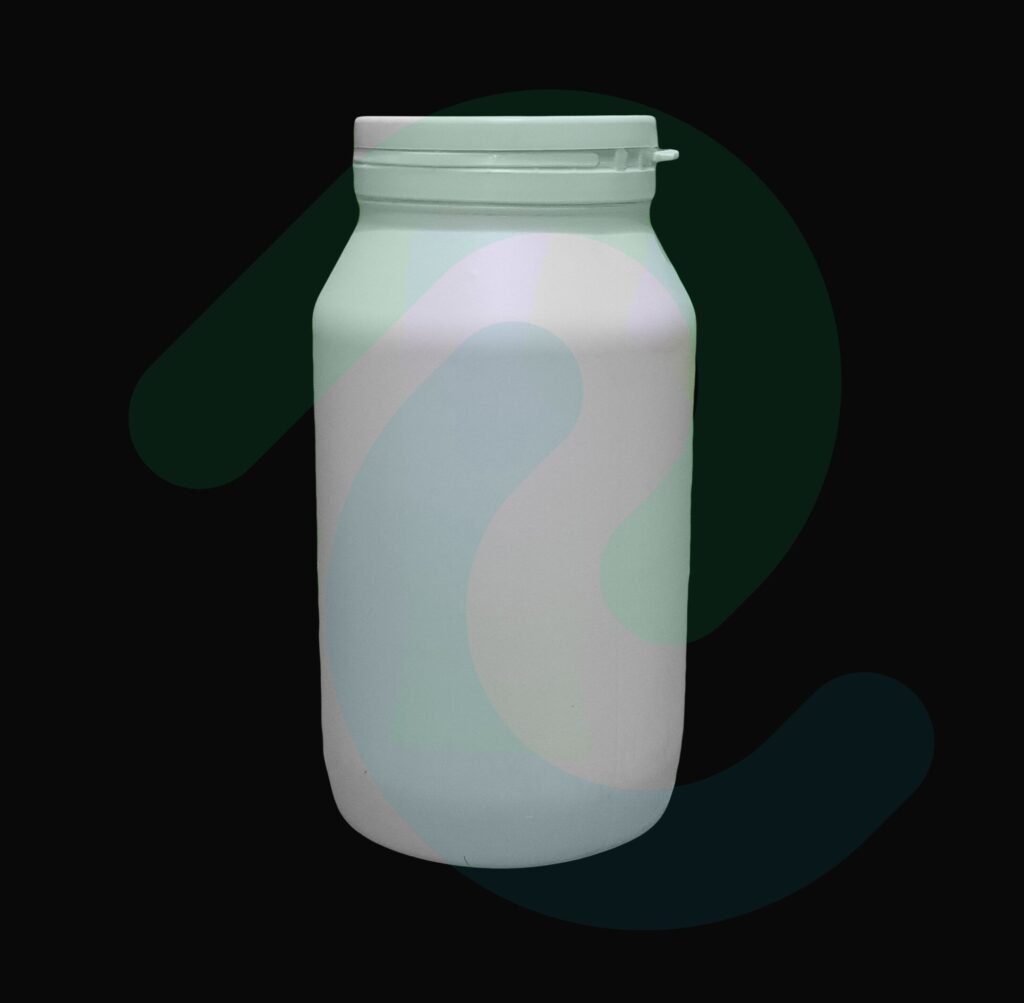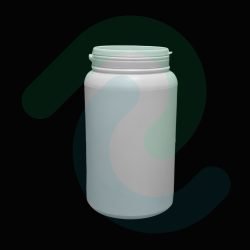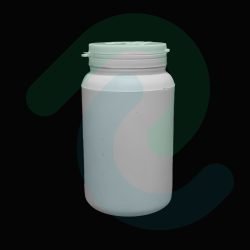
HDPE Tablet Jar
| Specification | Detail |
|---|---|
| Capacity | 1000 Gram |
| Height | 8 Inches |
| Ground | 13 Inches |
Minimum Order Quantity 500
In the pharmaceutical industry, ensuring the safety, efficacy, and integrity of medications is of utmost importance. Proper packaging plays a critical role in maintaining the quality of pharmaceutical products, particularly tablets. The HDPE (High-Density Polyethylene) tablet jar is a specialized packaging solution designed to protect and preserve pharmaceutical tablets effectively. This article explores the features, advantages, applications, and environmental impact of HDPE tablet jars, highlighting their significance in ensuring the quality and safety of medications.
Understanding HDPE Tablet Jars
HDPE tablet jars are containers crafted from high-density polyethylene, a durable and chemically resistant thermoplastic material. These jars are specifically designed to store and protect pharmaceutical tablets, ensuring they remain uncontaminated and maintain their therapeutic properties.
The Importance of Proper Tablet Packaging
Product Safety:
Proper tablet packaging is crucial to prevent contamination, deterioration, and physical damage that may compromise the safety and efficacy of the medication.
Moisture and Light Protection:
Tablets are sensitive to moisture and light, which can degrade their chemical composition over time. Adequate packaging prevents exposure to these elements.
Child-Resistant Features:
In cases where medications are potentially harmful to children, child-resistant closures on tablet jars enhance safety and prevent accidental ingestion.
Advantages of HDPE Tablet Jars
Chemical Resistance:
HDPE is known for its exceptional chemical resistance, protecting pharmaceutical tablets from interaction with external substances and maintaining their integrity.
Airtight Seal:
The airtight seal provided by the cap ensures that the tablets are protected from moisture and air, preserving their stability and efficacy.
Light and Impact Resistance:
HDPE tablet jars are light and impact-resistant, reducing the risk of breakage during handling and transportation.
Versatility in Size and Design:
HDPE tablet jars come in various sizes to accommodate different tablet quantities, and their design can be customized to meet specific branding and labeling requirements.
Child-Resistant Closures:
Tablet jars can be equipped with child-resistant closures to prevent unintended access, making them suitable for medications that require such safety features.
Applications of HDPE Tablet Jars
Pharmaceutical Industry:
HDPE tablet jars are extensively used by the pharmaceutical industry to package various oral solid dosage forms, including tablets and capsules.
Over-the-Counter (OTC) Medications:
Many over-the-counter medications, such as pain relievers, antacids, and allergy medicines, are packaged in HDPE tablet jars to ensure their quality and safety.
Herbal and Dietary Supplements:
Herbal supplements and dietary tablets, which are available in various formulations, benefit from the protective properties of HDPE tablet jars.
Veterinary Medicine:
In the veterinary industry, HDPE tablet jars are used to package medications for pets and livestock, ensuring the efficacy and safety of the products.
Environmental Considerations
Recycling Initiatives:
HDPE is highly recyclable, and proper waste disposal and recycling initiatives are essential for responsible plastic usage.
Sustainable Sourcing:
Using recycled HDPE or exploring bio-based alternatives can further reduce the environmental impact of HDPE tablet jars.
Consumer Education:
Educating consumers about the importance of recycling and responsible plastic usage can promote environmentally-conscious behaviors.
Challenges and Sustainable Solutions
Single-Use Plastics:
While HDPE tablet jars are recyclable, the challenge of single-use plastics persists. Encouraging recycling and exploring refillable or reusable options can help reduce waste.
Biodegradable Alternatives:
Continued research and development in biodegradable plastics offer a potential solution to reduce the environmental impact of traditional HDPE jars.
Eco-Friendly Packaging Materials:
Using eco-friendly materials for secondary packaging, such as labels and closures, can complement the sustainability of HDPE tablet jars.
Conclusion
HDPE tablet jars play a crucial role in the pharmaceutical industry, ensuring the safety, efficacy, and integrity of medications. The chemical resistance, airtight seal, and impact resistance of HDPE make it an ideal material for protecting pharmaceutical tablets from external elements.
As environmental concerns continue to grow, the packaging industry must prioritize sustainable practices and responsible plastic usage. By embracing HDPE tablet jars and adopting eco-friendly initiatives, businesses can enhance patient safety, product integrity, and contribute to a cleaner, greener, and more sustainable future.
With a focus on innovation and environmental stewardship, the future of packaging looks promising, striking a balance between functionality and environmental preservation. By collaborating with consumers, manufacturers, and recycling facilities, the packaging industry can pave the way towards a more sustainable and responsible packaging ecosystem.



